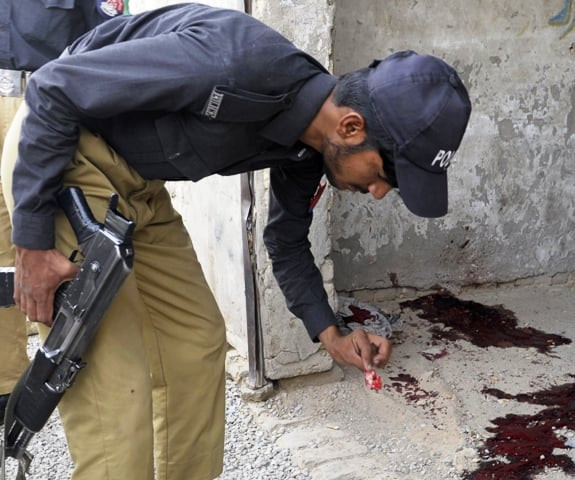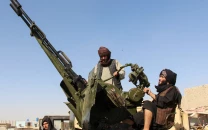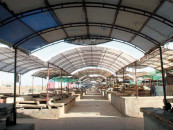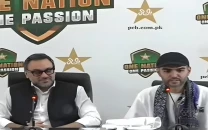Death and despair
Almost each day it seems a new set of mourners goes about the grim task of burying the dead in Balochistan.

Most recently, among these families, has been that of Chief Minister of Balochistan Nawab Aslam Raisani, whose 14-year-old nephew, Mir Akmal Raisani, was killed in a bomb blast at a football stadium in Mastung. His father, Nawabzada Siraj Raisani, chief guest at the football match, appears to have been the target of the attack, claimed by the shadowy Balochistan Republican Army. Thirty-nine people, including about 15 members of the security forces, were injured in the intense firing that followed the explosion and took place as the Raisanis were climbing into their vehicle to leave the venue.
The awful game of death took place elsewhere too. In Quetta, 18 people were killed in two separate attacks, both of which appeared to be sectarian in nature. In the first incident on July 29, seven members of the Hazara community died when assailants opened fire on their vehicle from another car. Another 11 people, all Shias and including a woman, died in an eerily-similar attack at a busy bus stand in the city Saturday morning.
Far too much blood has been spilled in Balochistan. More continues to stain streets. The real question is what can be done to staunch the wounds. Members of the provincial government, speaking privately, have been quoted as saying they are essentially helpless. The question than is who has the authority, the power and the will to end the havoc in the province. The central government has watched silently for far too long. It must now act decisively before things reach a point where they can no longer be managed and developments become even more ominous than those we are seeing now begin to unfold.
Published in The Express Tribune, July 31st, 2011.















COMMENTS
Comments are moderated and generally will be posted if they are on-topic and not abusive.
For more information, please see our Comments FAQ